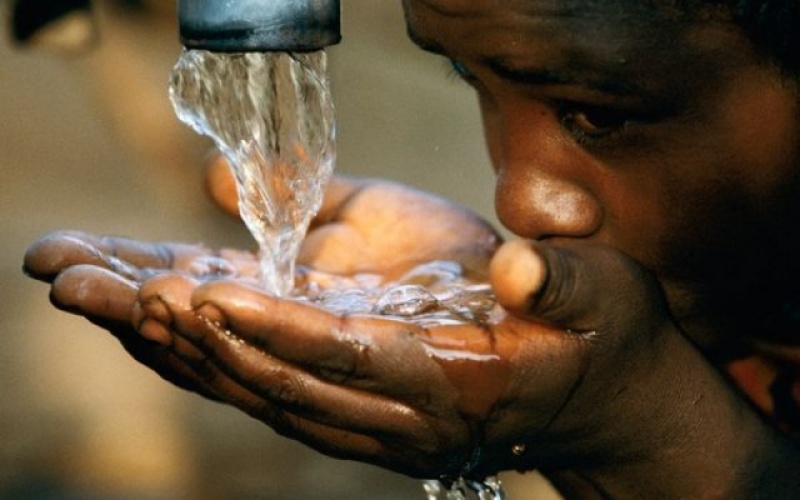The United Nations International Children’s Emergency Fund (UNICEF) has disclosed that “three out of every five people drink water contaminated with faeces” in Ghana.
A press release from UNICEF to mark the commemoration of World Water Day on March 22, indicated that the situation increased the risk of contracting diseases such as diarrhoea and cholera.
“Despite recent positive developments, the majority of our household wastewater continues to be discharged untreated, much of it polluting our rivers, groundwater, and coastal waters,” the statement added.
UNICEF has, therefore, called for better ways of treating wastewater before discharging so that it does not pollute water bodies that serve as sources of drinking water.
Below is the statement:
Paying closer attention to the way Ghanaians treat and dispose wastewater in their homes, farms and industries, can move the country a step farther in reaching all the targets of the Sustainable Development Goal on Water, says UNICEF.
Wastewater simply refers to water that been used in the home (for bathing, toilets, dishwashing, laundry etc.), on farms (mixed with pesticides or chemical fertilizers) or as part of an industrial process.
According to the Progress on Drinking Water, Sanitation and Hygiene Report (2014 update) produced by the World Health Organization in collaboration with UNICEF, globally, 1.8 billion people use a source of drinking water contaminated with faeces, putting them at risk of contracting cholera, dysentery, typhoid and polio. Unsafe water, poor sanitation and hygiene causes 842,000 deaths each year.
In Ghana, three out of every five people drink water contaminated with faeces, risking contracting diseases which include diarrhoea and cholera. Diarrhoea causes the deaths of over 3,600 Ghanaian children every year with cholera outbreaks occurring too frequently in our cities. Despite recent positive developments, the majority of our household wastewater continues to be discharged untreated, much of it polluting our rivers, groundwater and coastal waters.
“It’s important to consider how we dispose off water we use at home and in our companies. We must realize that this is putting the lives of Ghana’s children at risk. Let’s keep working together to ensure that every child has access to safe water”, says Susan Namondo Ngongi, UNICEF Representative in Ghana.
In reality, most of the wastewater that is produced remains untreated causing widespread water pollution, especially in developing countries like Ghana. A global estimate by UNDP and UN-Habitat states that 90% of all wastewater generated and released into the environment is untreated. In many developing countries, the bulk of domestic and industrial wastewater is discharged without any treatment or after primary treatment only. Currently, Ghana as a country lacks adequate wastewater treatment systems and majority of households and communities nationwide lack basic sanitary facilities.
Today, as the world marks the twenty-fourth celebration of World Water Day, it must be noted that the costs associated with wastewater management are greatly outweighed by the benefits – protection of human and public health, environmental sustainability and economic development. Specific benefits include valuable resources such as biogas, organic fertilizers and treated water for irrigation for farms, landscapes and public parks.
Source: Ghana/AccraFM.com

































